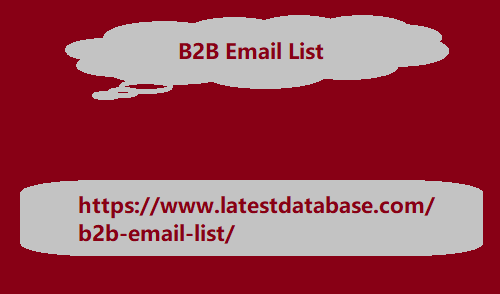Post by account_disabled on Jan 22, 2024 5:46:44 GMT
The cargo transportation industry is considered one of the most difficult in organizing a business. It is important to take into account logistics - calculate the optimal route, anticipate possible difficulties, organize the joint work of many departments of the company. A CRM system for a transport company allows you to automate routine processes, simplify communication and ensure comfortable management of applications and orders. This is a tool that takes a transport company to a new level. The most common problems in the work of transport companies The most common problems in the work of transport companies Despite the versatility of business and the unique characteristics of each enterprise, the problems, as a rule, are common in the sphere. CRM for a transport company should be implemented if you also have the difficulties described below and want to solve them. Speed of processing requests from clients The lack of clear regulations and algorithm of actions leads to the fact that the manager is not able to physically process a large number of applications.
The low speed of work is due to the lack of a clear procedure for the actions that the manager must follow. CRM for transport companies allows you to create a sales funnel and not disrupt the sequence of actions. Large percen B2B Email List tage of loss of customers and profits Some clients are lost due to the inability to process the application quickly. Another part is due to unsatisfactory work. But a large percentage of customer loss occurs at the checkout stage. Unaccounted for or unforeseen issues, incorrect logistics, untimely organization of cargo transportation, errors in the work of the courier or manager. As a result, clients do not return and profitability falls. WE RECOMMEND READING Profitability of a CRM system Calculating the economic effect of CRM implementation in hard numbers is not so easy. You will have to take into account indicators for customers, sales team, marketing, etc.

Managers do a lot of unnecessary things Managers perform many actions routinely. Drawing up commercial offers, manually sending messages, maintaining a client card in tables, or in general, in a notepad. Long stages of logistics discussions with intermediaries. It is believed that a manager spends about 70% of his time on placing an order. This time can be reduced by 2-4 times if you implement a SRM for a transport company. Automation of applications, reduction of routine processes, electronic management of clients in a single database, convenient document flow, direct communication with performers - these are just some of the opportunities that open up for the company. Lack of client history Customer information is a valuable resource. But some companies either keep records manually or don't have them at all. It’s easy to lose track of different sources, and access to them isn’t always at hand. A CRM system for a transport company creates a separate card for each client, keeps a history of calls and negotiations, and collects all orders and documents. The manager has full control over the work with the client and has access to information from anywhere.
The low speed of work is due to the lack of a clear procedure for the actions that the manager must follow. CRM for transport companies allows you to create a sales funnel and not disrupt the sequence of actions. Large percen B2B Email List tage of loss of customers and profits Some clients are lost due to the inability to process the application quickly. Another part is due to unsatisfactory work. But a large percentage of customer loss occurs at the checkout stage. Unaccounted for or unforeseen issues, incorrect logistics, untimely organization of cargo transportation, errors in the work of the courier or manager. As a result, clients do not return and profitability falls. WE RECOMMEND READING Profitability of a CRM system Calculating the economic effect of CRM implementation in hard numbers is not so easy. You will have to take into account indicators for customers, sales team, marketing, etc.

Managers do a lot of unnecessary things Managers perform many actions routinely. Drawing up commercial offers, manually sending messages, maintaining a client card in tables, or in general, in a notepad. Long stages of logistics discussions with intermediaries. It is believed that a manager spends about 70% of his time on placing an order. This time can be reduced by 2-4 times if you implement a SRM for a transport company. Automation of applications, reduction of routine processes, electronic management of clients in a single database, convenient document flow, direct communication with performers - these are just some of the opportunities that open up for the company. Lack of client history Customer information is a valuable resource. But some companies either keep records manually or don't have them at all. It’s easy to lose track of different sources, and access to them isn’t always at hand. A CRM system for a transport company creates a separate card for each client, keeps a history of calls and negotiations, and collects all orders and documents. The manager has full control over the work with the client and has access to information from anywhere.
